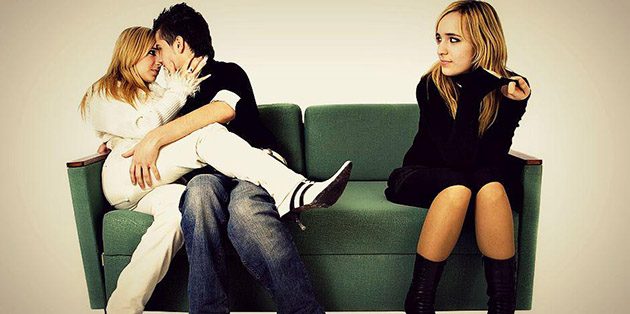June 27, 2017
Advice for Relationships With a “Third Wheel”

Do you have a friend who serves as a third wheel to your relationship tricycle? This morning, Jess sat down with Jeff McArthur on Global TV’s The Morning Show to discuss the benefits of couple-friend threesomes and offer some practical advice. Check out her notes and video below.
What should you do if you feel like a third wheel?
- Know that the latest research is falling on your side: new research suggests that singles report higher levels of fulfilment, self-determination and personal growth.
- In terms of practical strategies, cultivate a relationship with both parties and consider making plans with one member of the couple at a time.
- Introduce them to some of your other friends and let them know if their lovey-dovey (or conflict) behaviour is making you uncomfortable — they may not even realize it.
- And of course, be happy for them!
What are the benefits of being the third wheel?
- You get the best of both worlds — social support as well as the freedom to grow. You can travel, eat and explore as a threesome, but leave as you please when you need space. Self-expansion has been shown to be vital to healthy relationships and it’s one area in which many couples struggle.
- Anecdotal evidence also suggests that you get many free meals and set-up (blind date) offers if you’re interested.
How should couples treat their single friends differently/better?
- Don’t make sweeping statements about being single or being childless (e.g. Wait until your married…Wait until you have kids…). It’s condescending. Marriage and parenthood are not monoliths — no two experiences are the same. I was talking to a client the other day (with 10-month-old twins and a six-year-old) and she laughs when people say it’s the toughest job; she says staying home to raise them is far easier and less emotionally draining than her previous job in engineering.
Are there any benefits to the couple?
- You avoid the pitfall of becoming insular, which isn’t uncommon for newlyweds. Single people have closer relationships with friends, parents, siblings, co-workers and neighbours, so you stand to benefit from their network of social support.
- We need balance in our lives and when singles and couples (and triads!) mix, we all benefit.
It seems singles and couples tend to judge one another — why is this and what can we do about it?
- Couples sometimes worry that they’re not having as much fun as their single friends and can become jealous of their independence and freedom; singles may feel that they’re missing out on companionship or the idealized lifestyle of being partnered. But it’s not uncommon for couples to assume that all single folks desire to be in a relationship and singles can judge couples for their lifestyle choices as well. This may be explained by normative idealization: we not only idealize and rationalize our own lifestyle, but we derive comfort and confidence in our choices from the belief that everyone else would benefit from following in our footsteps. We rationalize our relationship choices so that we feel better about them.











